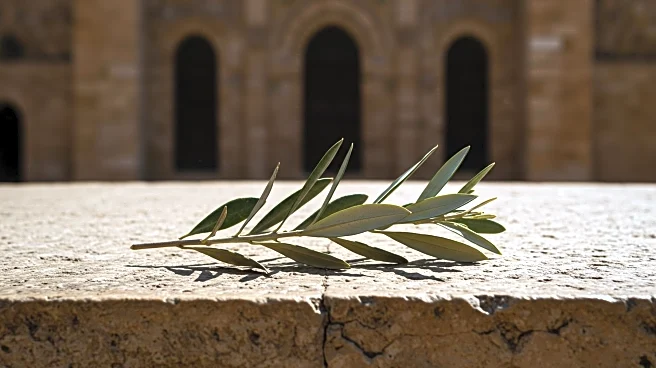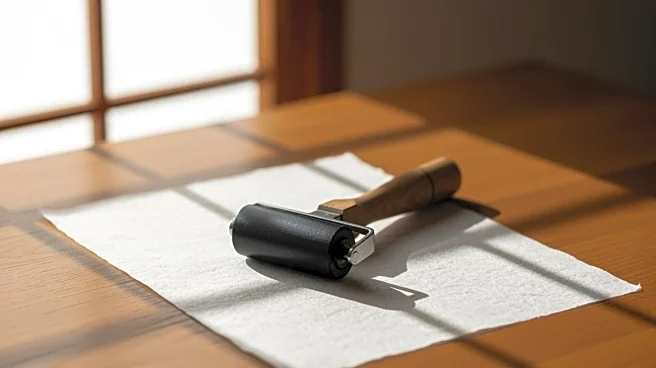What is the story about?
What's Happening?
Hundreds of Druze individuals in Syria's southern city of Sweida have taken to the streets to demand self-determination following deadly clashes in July. The protests, which saw some participants waving Israeli flags, highlight the ongoing ethnic and religious tensions in the region. The clashes involved Druze militias and Bedouin Sunni tribes, resulting in approximately 1,600 deaths, many of whom were Druze civilians. The Syrian military intervened, declaring a ceasefire shortly after the violence erupted. Syria's interim government, led by President Ahmed al-Sharaa, has established an investigative committee to examine the sectarian violence, with a report expected in three months. The protests mark a significant shift for the Druze community, as they openly call for self-determination, a move described as unprecedented by Druze activist Rayyan Maarouf.
Why It's Important?
The protests in Sweida underscore the deep-seated ethnic and religious divisions within Syria, which have been exacerbated by the collapse of the Assad regime. The Druze community, which constitutes about 3% of Syria's population, is seeking greater autonomy and protection, particularly in light of the recent violence. The involvement of Israel, which bombed Syrian government forces in July to protect the Druze minority, adds a complex international dimension to the conflict. The situation could potentially destabilize the region further, affecting neighboring countries and international relations. The outcome of the investigative committee's report could influence future governance and peace efforts in Syria.
What's Next?
The Syrian interim government's investigative committee is expected to present its findings on the sectarian violence in Sweida within three months. The report could lead to policy changes or further international intervention, depending on its conclusions. The Druze community's call for self-determination may prompt additional protests or negotiations with the government. International stakeholders, including Israel, may continue to play a role in the region's stability, potentially influencing diplomatic relations and security policies.
Beyond the Headlines
The Druze protests for self-determination reflect broader issues of minority rights and autonomy within conflict zones. The situation in Sweida could serve as a case study for international human rights organizations and policymakers focusing on ethnic and religious minority protections. The involvement of external powers like Israel highlights the geopolitical complexities of Middle Eastern conflicts, where local disputes can have far-reaching international implications.















